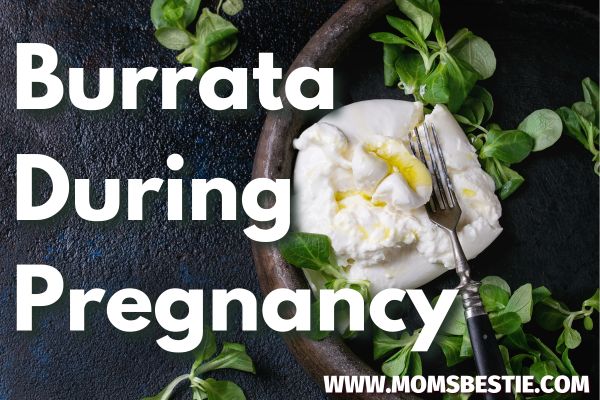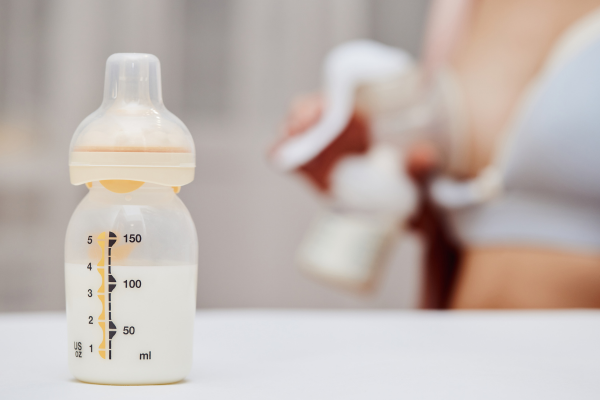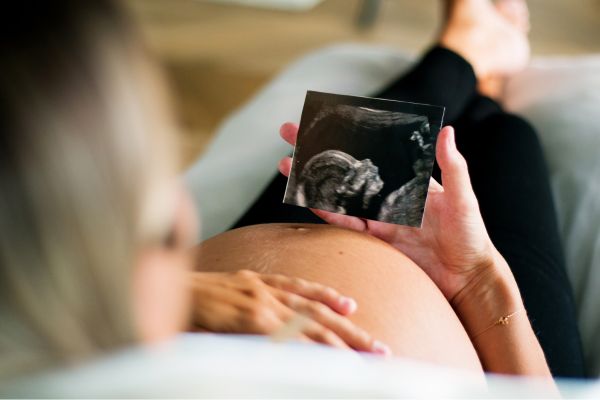Is Burrata Pasteurized (And Can You Eat It When Pregnant?)

Burrata, a soft and creamy cheese originating from Italy, has become increasingly popular in recent years.
The good news is that pasteurized burrata, made from pasteurized milk, is safe to consume during pregnancy.
Pregnancy is a crucial phase in a woman’s life, where taking care of the body becomes a top priority.
While most women are aware of the basic dietary requirements during pregnancy, they often tend to overlook the safety of the food they consume.
One such food that has been the subject of much debate among expectant mothers is burrata cheese.
In this article, we will take a closer look at why pasteurized burrata is safe to eat and what precautions expectant mothers should take.
What Is Burrata Cheese?
Burrata cheese is a fresh Italian cheese that originated in the Apulia region of southern Italy.
It is made from mozzarella and cream and has a soft, creamy, and delicate texture.
To make burrata, fresh milk is heated and mixed with rennet to form curds. The curds are separated from the whey and formed into thin sheets.
These sheets are filled with a mixture of fresh cream and stringy pieces of mozzarella called stracciatella.
The sheets are then tied to form a small, pouch-like shape, and the cheese is immersed in cool water to solidify and preserve its shape.
What Is Pasteurized Burrata Cheese?
Pasteurized burrata is a safer alternative to traditional burrata as it is made from pasteurized milk.
Pasteurization involves heating milk to a high temperature to kill any harmful bacteria present in the milk.
Why Is Pasteurized Burrata Safe For Pregnant Women?
Pregnant women are more susceptible to foodborne illnesses because their immune systems are weaker, making it harder for them to fight off infections.
Bacteria like Listeria, Salmonella, and E. coli, which may be present in the milk can cause foodborne illnesses that can be particularly harmful to pregnant women and their developing fetuses.
Listeria, for example, can cross the placenta and infect the fetus, leading to miscarriage, stillbirth, premature delivery, or serious health problems for the newborn.
Pasteurized burrata is safe for pregnant women because the pasteurization process involves heating the milk to a high temperature to kill any harmful bacteria.
By choosing pasteurized burrata made from pasteurized milk, pregnant women can reduce their risk of contracting foodborne illnesses and protect the health of their unborn child.
How To Buy Safe Pasteurized Burrata?

When buying pasteurized burrata, there are a few things to keep in mind to ensure that you are purchasing a safe and high-quality product:
Check The Label
Look for the words “pasteurized milk” on the label of the burrata cheese. This indicates that the cheese has been made with pasteurized milk and is safe to consume.
Check The Expiration Date
Make sure to check the expiration date on the packaging to ensure that the cheese is still fresh and safe to eat.
Check The Packaging
The packaging should be sealed and free of any damage or leaks. This can help ensure that the cheese has not been exposed to harmful bacteria.
Buy From A Reputable Source:
Purchase pasteurized burrata from a reputable cheese shop, grocery store, or online retailer with a good reputation for selling high-quality, safe products.
How To Store Burrata Safely?
To safely store burrata at home, you should follow these guidelines:
Keep It Refrigerated
Burrata cheese should always be kept refrigerated, ideally at a temperature between 34°F and 38°F (1°C to 3°C). [Below 40ºF]
This will help to prevent any harmful bacteria from growing.
It should never be frozen, as this can alter its texture and flavor.
Keep It In Its Original Packaging
It should be kept in its original packaging until it is ready to be eaten.
This packaging is designed to help preserve the freshness of the cheese.
Consume It As Soon As Possible
Burrata cheese is best consumed as soon as possible after purchase.
If you can’t eat it right away, it should be consumed within 1-2 days.
What Does Burrata Cheese Contain?
Burrata cheese is a good source of protein and calcium, which are essential nutrients for maintaining healthy bones and muscles.
It also contains a small amount of carbohydrates and is high in fat and sodium, so it should be consumed in moderation as part of a balanced diet.
Pregnancy Safe Burrata Recipes
Burrata cheese is a versatile and delicious ingredient that can be used in a variety of pregnancy-safe recipes. Here are a few examples:
- Tomato and Burrata Salad: Slice fresh tomatoes and top with pieces of burrata cheese. Drizzle with olive oil, and balsamic vinegar, and sprinkle with salt and pepper to taste.
- Burrata and Roasted Vegetable Pizza: Top a pre-made pizza crust with roasted vegetables (such as zucchini, eggplant, and red peppers), pieces of burrata cheese, and fresh herbs (such as basil or thyme). Bake in the oven until the crust is crispy and the cheese is melted.
- Burrata and Pesto Pasta: Cook your favorite pasta according to the package instructions. Toss with homemade or store-bought pesto sauce, and top with pieces of burrata cheese.
- Burrata and Grilled Vegetable Panini: Layer grilled vegetables (such as zucchini, eggplant, and red peppers) and burrata cheese between two slices of bread. Grill on a panini press until the cheese is melted and the bread is crispy.
What If You Ate Unpasteurized Burrata?
If you have consumed unpasteurized burrata or any other unpasteurized cheese and experience symptoms such as fever, headache, vomiting, or diarrhea, it is important to seek medical attention immediately.
In most cases, these symptoms can be treated successfully with antibiotics, but it is important to act quickly to avoid complications.
To Wrap It Up
Burrata cheese can be a tasty and nutritious addition to your diet, especially if it is pasteurized and consumed in moderation.
Pregnant women should be particularly cautious when consuming burrata cheese, as well as any other unpasteurized cheese, to avoid the risk of foodborne illness.
Follow safe food handling practices and check the label of the cheese you buy to safely enjoy this creamy and indulgent cheese in a variety of dishes.

Always consult with your healthcare provider regarding your specific dietary needs during pregnancy.
It is important to note that this article is not intended to be a substitute for medical advice.
While we strive to provide accurate and up-to-date information, we cannot guarantee the completeness or accuracy of the information presented in this article.






One Comment